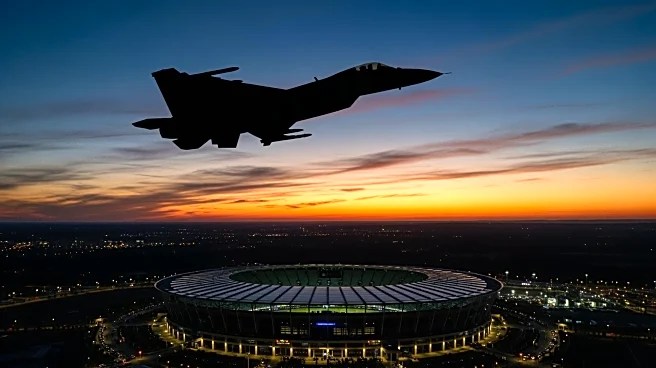Rapid Read • 8 min read
Crimea, a region with a complex identity, was annexed by Russia in 2014 following a disputed referendum. Historically, Crimea was part of the Soviet Union until 1954 when it was transferred to Ukraine. The region has been a point of contention between Moscow and Kyiv, with political disputes arising after the Soviet Union's collapse in 1991. The annexation was justified by Russia as a move to protect Russian citizens and speakers, but it was condemned internationally. The Crimean War in the 19th century and the deportation of Crimean Tatars by Stalin in 1944 are significant historical events that have shaped the region's identity.
AD
The annexation of Crimea has significant geopolitical implications, affecting relations between Russia and Western countries. It has led to sanctions and diplomatic tensions, impacting global politics and security. The region's strategic importance is underscored by the presence of the Russian Black Sea Fleet in Sevastopol, which provides Russia with access to the Mediterranean. The situation also affects the rights and living conditions of the Crimean Tatars, who face human rights abuses and political marginalization. The ongoing dispute over Crimea's status continues to influence Ukraine's foreign policy and its relations with NATO and the European Union.
Ukraine, under President Volodymyr Zelensky, remains committed to reclaiming Crimea as part of its territorial integrity. This stance is supported by Western allies who provide military and diplomatic backing. The international community continues to monitor the situation, with potential for further sanctions or diplomatic efforts to resolve the conflict. The future of Crimea remains uncertain, with ongoing military and political maneuvers shaping its fate. The strategic Kerch bridge, linking Crimea to Russia, remains a target for Ukrainian forces aiming to disrupt Russian logistics.
The annexation of Crimea raises broader questions about the principles of sovereignty and self-determination. It challenges the international community's ability to enforce territorial integrity and prevent unilateral changes to borders. The situation also highlights the ethnic and cultural complexities within Crimea, where identities are influenced by historical ties to both Ukraine and Russia. The long-term impact on regional stability and international norms regarding annexation and occupation remains a critical issue.
AD
More Stories You Might Enjoy











